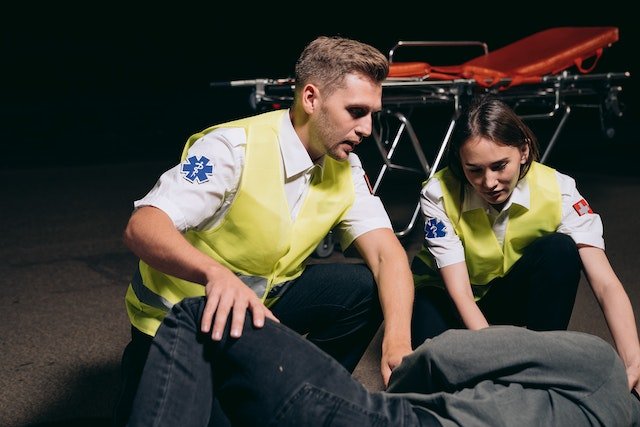What Does PTSD Treatment Look Like for First Responders
Imagine going to work and experiencing death, destruction, violence, and sickness on a daily basis. Alarms and sirens. Tear-soaked faces. Blood-curdling screams. Smoke. Blood. Wreckage. First responders deal with emergencies and traumatic events every single day.
Police officers, paramedics, EMTs, firefighters, and other rescue workers never know what their day will bring them when they walk through the doors. Every single day could bring something new to the table. When the phone rings or the alarm sounds, they're on their way to help in any way, shape, or form that they can. However, witnessing so much trauma takes its toll, and many first responders have PTSD.
With that in mind, here's what PTSD treatment looks like for our front-line heroes.
Cognitive Behavioral Therapy (CBT)
Cognitive Behavioral Therapy, or CBT, is one of the best treatment options for Post-Traumatic Stress Disorder or PTSD. CBT is a common type of talk therapy where an individual will work directly with a therapist to help identify and get to the root cause of the trauma. Together, you will identify any negative thinking patterns, so you can better respond to them in the future. CBT has a number of different benefits. It's relatively affordable, and results can be seen in as little as 5 to 20 sessions or weeks.
Eye Movement Desensitization and Reprocessing (EMDR)
Eye Movement Desensitization and Reprocessing, or EMDR therapy, is a treatment option that involves moving your eyes in a specific way as you process traumatic memories. EMDR is a great treatment option because it doesn't require individuals to actually talk about their trauma. Instead, the therapy focuses on the behaviors, emotions, and thoughts associated with the trauma. This type of therapy allows your brain to heal naturally instead of causing stress when discussing negative feelings, thoughts, and emotions as you would during a talk therapy session.
Meditation
If you haven't tried meditation, don't knock it before you try it. Meditation is proven to be highly effective, so give it a chance. Meditation is a great way to channel your energy and focus on being grounded in the present moment. So often, we find ourselves stressing about the past or worried about things that we don't have any control over in the future. Even when meditation is done for short periods, it positively affects your mental health. It's a great way to implement small doses to release any built-up stress, so you can calm down and move forward without holding onto that negative energy.
Stress Management
Stress prevention and management are crucial, especially when involved in a high-stress job daily, like fire responders. You can do some things to be proactive instead of reactive in your approach to dealing with PTSD. Everyone, not just first responders, should focus on eating healthy and well-balanced meals throughout their day. Sugar is okay in moderation, but you should ensure you're filling your plate with enough protein, carbohydrates, and fats to give you enough energy to make it through your day.
Another important factor is sleep. Sleep should always be a priority. Aim for at least six to eight hours of sleep each night. Rest and recovery are just as important so your body can function to the best of its ability. Another way to manage stress is to get your body moving for at least 30 minutes each day. Head to the gym. Go for a walk around your neighborhood. Attend a yoga class. Do whatever makes you happy to get your blood flowing and your heart pumping.
Next Steps
There are several different treatment options for PTSD. What works for one of your family members, friends, or colleagues may not work for you. You have to do the research and may even have to test out a few options to find what works best for your wants and needs.
You are not alone. If you're struggling with PTSD, reach out today to set up a consultation for trauma therapy or EMDR Therapy.

